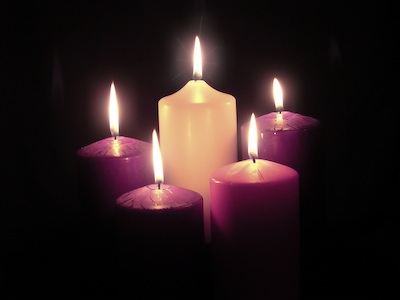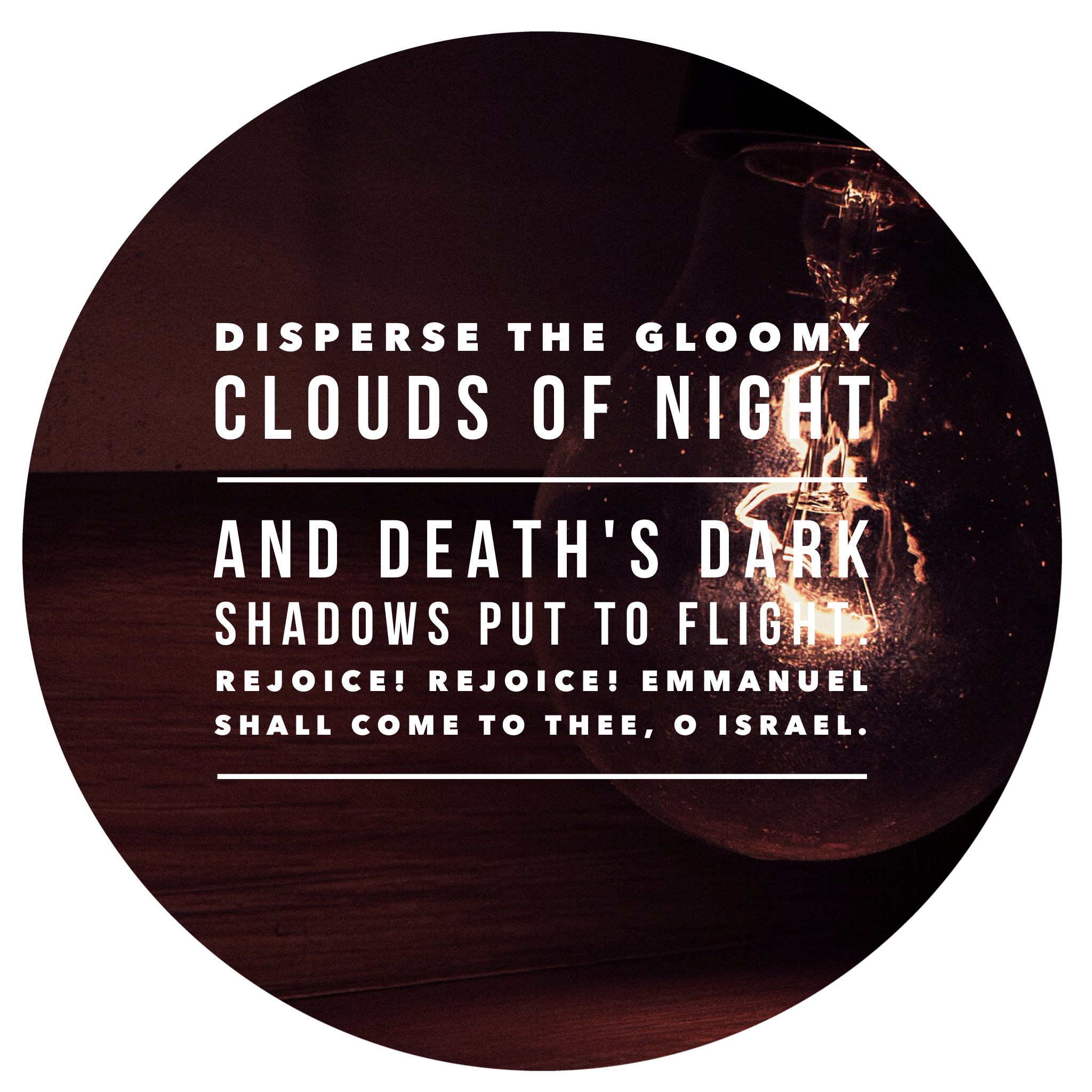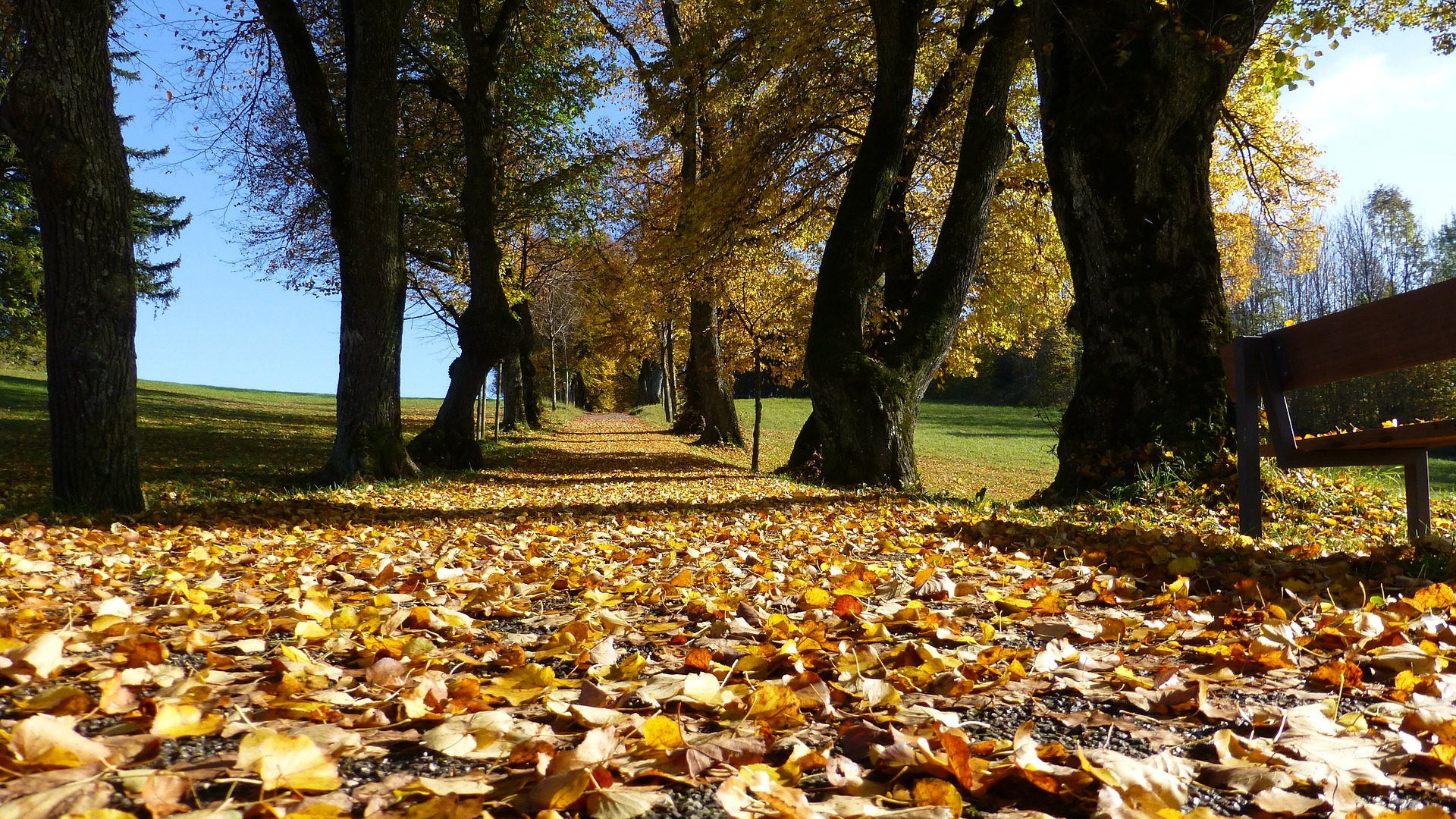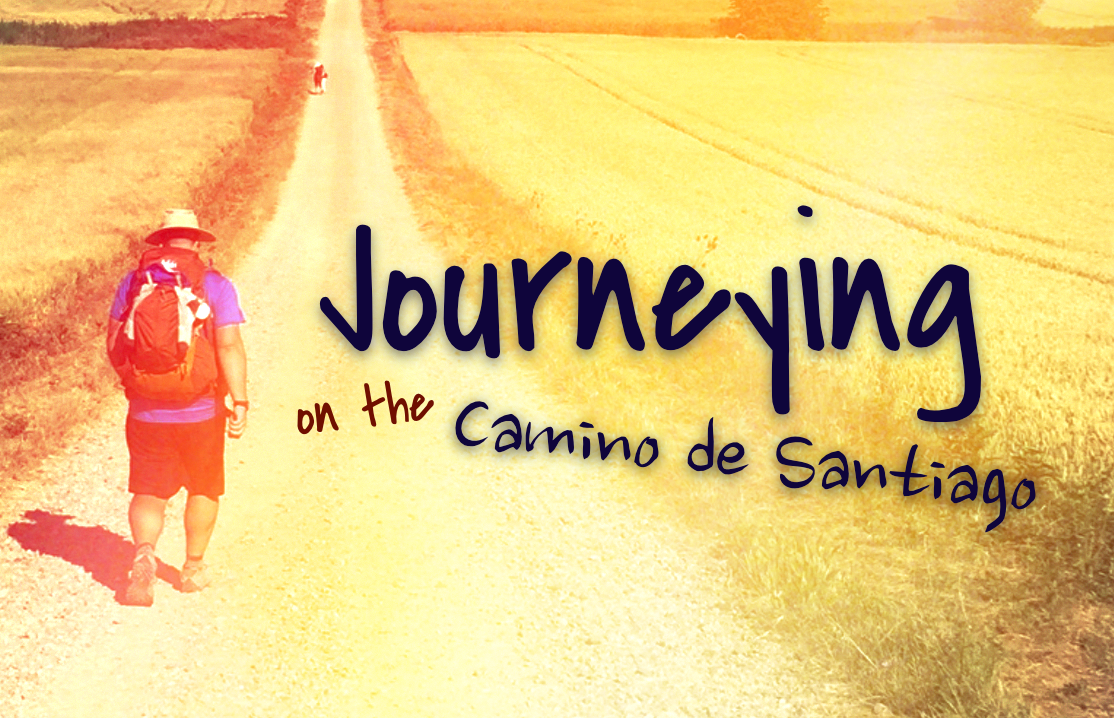This essay is based off a reflection Erin shared at the Arrupe Commissioning Mass at Boston College on Sunday, December 8, 2013.
 Advent is a special season in the Church’s liturgical year. It is a season of waiting, of desiring, and of deep hope. It is a season of darkness, yet we light candles to remind ourselves of the light that can never be overcome.
Advent is a special season in the Church’s liturgical year. It is a season of waiting, of desiring, and of deep hope. It is a season of darkness, yet we light candles to remind ourselves of the light that can never be overcome.
The readings the Church proclaims this season tell a story of hope. In the book of Isaiah, we hear a story of restoration and peace, a story of reconciliation, a story in which all is indeed well, where the lion and the lamb will lie down together, where all has been made one in God. The psalms promise us that justice and fullness of peace will flourish in God’s time.
Yet, you and I know that this is not the world we live in today.
After I graduated from college, I spent two and a half years serving at Farm of the Child in rural Honduras. Honduras is an amazingly beautiful country. It is also one of the poorest countries in Central America, and is plagued by political corruption, drug trafficking, and perhaps worst of all, extreme violence. In 2011, Honduras was named the murder capital of the world. Its per-capita homicide rate is four times that of Mexico. In Honduras, one out of every fifty men will be murdered before he turns 31.
Honduras is not the “holy mountain” of which Isaiah prophesies.
Each Advent, I find myself struck by the words of the song we so often sing – O Come, O Come, Emmanuel. During my time in Honduras, the words to this hymn became a fervent prayer for me. Come. Please come. This broken world needs you. Come quickly. Come now.
A young boy is dropped off at the front gates of our orphanage by the police. Little is known about him except that he had been living on the streets of a nearby town. It is now our job to provide a home for him, to raise him, to love him. O Come, O Come, Emmanuel. Come quickly. Come now.
I go to one of my student’s homes to find out why she has been out of school for the past week. She is eleven. I find out that her whole family has malaria, and because she is the only girl in the family, it is her job to care for them, to cook and clean and wash their clothes for them. O Come, O Come, Emmanuel. Come quickly. Come now.
One of the teenagers in our program tells me about her life before she came to our project. There was rarely enough food to go around. She and her siblings could not go to school because they didn’t have notebooks, and you can’t go to school if you don’t have notebooks. Her mother did not often have milk for her baby sister, so she gave her sugar water instead. The baby was so small and malnourished that when she arrived at the project, no one knew if she would live or die. O Come, O Come, Emmanuel. Come quickly. Come now.
 The boy grows. He learns to read by following along in the prayer books we use each day at morning prayer. He learns the songs we sing each day by heart. He sings fiercely. He is generous and strong and good and brave. Rejoice. Rejoice. Emmanuel has come to you, O Israel.
The boy grows. He learns to read by following along in the prayer books we use each day at morning prayer. He learns the songs we sing each day by heart. He sings fiercely. He is generous and strong and good and brave. Rejoice. Rejoice. Emmanuel has come to you, O Israel.
My student manages to pass the year. She is bright and helpful and kind and full of laughter. One day she arrives to my classroom with a giant bag of mangos she climbed a tree to pick for me. “Tenga, profa,” she commands. “They’re for you.” She is light in my days. Rejoice. Rejoice. Emmanuel has come to you, O Israel.
A neighbor invites me to come and eat lunch at her home. I arrive and quickly realize that she has killed one of her prized chickens for us to eat that day. It is an incredible act of generosity. She sends her youngest child with a 40-lempira bill to buy a 3-liter bottle of Coca-Cola. We break bread. There is more than enough. Rejoice. Rejoice. Emmanuel has come to you, O Israel.
Jesuit Anthony DeMello has a quote I like very much, and it seems fitting for this time of the year, as we reflect on Emmanuel, the God who puts on skin and comes to dwell among us. He says:
We forget all too easily that one of the big lessons of the Incarnation is that God is found in the ordinary. You wish to see God? Look at the face of the person next to you. You want to hear God? Listen to the cry of a baby, the loud laughter at a party, the wind rustling in the trees. You want to feel God? Stretch your hand out and hold someone. Or just quiet yourself, become aware of the sensations in your body, sense God’s almighty power at work in you and feel how near God is to you. Emmanuel, God-with-us.
I believe that God is indeed with us, born endlessly in countless ways, and that we must look for the light that gives us hope in the vision we hear of in the scriptures – a vision of justice and peace and flourishing. The prophet Habakkuk tells us that “the vision still has its time, presses on to fulfillment, and will not disappoint; if it delays… wait for it.”
Can we hold onto the vision? Can we hold it when our hearts are broken – by Syria, Paris, Beruit, Kenya, Colorado Springs, Ferguson… and the list goes on? This season, I pray that our hearts might open to both the world’s pain and its joy in equal measure; that we may see the world’s darkness and be moved, yet never overcome by it; that we may trust in the compassionate presence of the God who is Emmanuel, a God ever with us. Let us place our hope in the vision which still has its time, and presses on to fulfillment. It will not disappoint. And yet, if it delays… we will wait for it.









Thank you Erin for a very powerful piece. You are right that Advent is a time of waiting. You are right too that the world is not yet as the prophets prophesied. But remember Jesus came into a world where the Jewish people were living in a minor outpost of the Roman Empire, oppressed by the occupying power. God’s peace will come in God’s own time and remember God’s time frame is rather different to out own. I prefer to dwell on your phrase ” of deep hope”. As one of the Proverbs says:Trust in the Lord and in His might. God bless you and your new young family
Erin, this speaks very deeply to my heart. It is especially poignant for me at this time as our parish awaits two refugee families whom we are sponsoring. I am humbled that God would allow me to be part of this initiative. I will be sharing your reflection with the women in a Bible Study group that meets in my home. Blessings.
So beautiful it made me weep. Thank you!
Thank you for this very beautiful and timely reflection. Somehow you have managed to bring light to the darkness all around us. Like you, i can now wholeheartedly say, “Come Lord Jesus”.
Dear Erin thank you for this passionate reflection. It is good to recall how fortunate I am. All good wishes to you and all those of whom you write. Rachel x
Thanks for this inspiring reflection. Sometimes, considering the troubles of our world, I wonder when this hope that Advent assures us will come. Indeed, I join my voice in saying: ‘O come, O come, Emmanuel’.